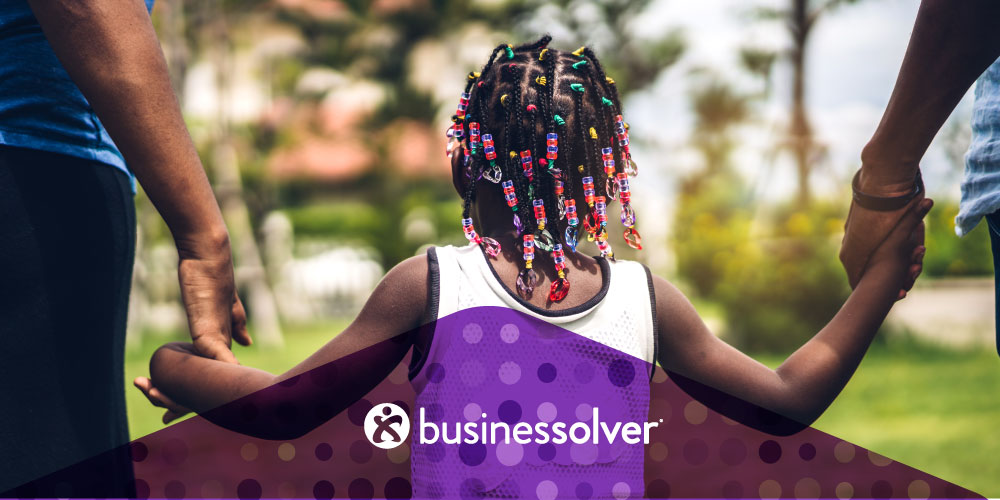I didn’t grow up celebrating Juneteenth.

I wish I had.
My great-grandparents were enslaved people. But I didn’t know that—or take the time do the math—until I was an adult. So, when I watched “Roots” in middle school I felt sad, of course, but also disconnected. And when my teacher tokenized me by asking only me (the only Black child in class) what I thought of the film and how it made me feel, I replied in the only way that made sense at the time: “I’m glad that wasn’t me.”
Raised by a freedom-fighting mother, I heard no shortage of stories of the terror and triumph that Black Americans experienced during the 1960s civil rights movement. But as a kid, hearing her first-hand, front-line tales of marches and protests traumatized me, made me anxious about being able to “live up” to opportunities her generation had created for mine—and scared about whether I’d live at all.
Recently, when Black people have died unnecessarily—Trayvon Martin, Sandra Bland, Philando Castille, Ahmaud Arbery, Breonna Taylor, George Floyd—I’ve felt like a kid all over again: tokenized, traumatized, anxious, scared. But never proud.
That’s why I wish I’d grown up celebrating Juneteenth. As an adult, it’s only been through celebrating the holiday with my children that I’ve learned how important it is to balance the sweet joys with the strange fruit of what it means to be Black American. That the way to balm them against the feelings of being tokenized, traumatized, and tolerated is to make them feel proud, connected, and celebrated.
That’s what honoring Juneteenth each year does for my kids (and the kid in me)—and what I think it can do for employers as well in reframing workplace efforts around diversity, equity, and inclusion (DEI): Focus on making employees feel proud, connected, and celebrated.
Prioritize pride over prejudice
Before I joined Businessolver, I read this LinkedIn post from our CEO Jon Shanahan. Published barely a week after the death of George Floyd, his words were raw and uncertain, but also real. Although Jon and I have precious little in common by way of lived experience, that post helped me see myself in the vision he had for his company and our culture at large. I remember thinking, “I’d be proud to work there.”
Organizations with inclusive business cultures and practices are 57.8% more likely to improve their reputations, and studies show that more than two-thirds of job seekers factor an organization’s efforts toward diversity and inclusion in their decision-making. And finding a point of pride in workplace DEI extends beyond job seekers: A clear majority (81%) of employees in Businessolver’s 2021 State of Workplace Empathy Study say, “I can tell a lot about a company’s values if they implement diverse and inclusive programs into the workplace,” with another study finding that employees who are part of organizations with high levels of diversity report a 7% higher intent to stay than their peers in organizations that have low levels of diversity.
Strengthen connective tissue through belonging
My colleagues are perfectly imperfect. As allies, they don’t get it right all the time, but they try to—and they learn and try again every time they get it wrong. They’re committed to “doing the work” around DEI personally, and it shows professionally in how well we connect as a team.
Beyond my own (biased) anecdotes, research shows that workers in highly diverse and inclusive organizations result in a 26% increase in team collaboration and an 18% increase in team commitment. That strengthened collaboration, commitment, and connection yields big results that any employer would love: Workplace belonging leads to an estimated 56% increase in job performance, 50% decrease in turnover risk, and even a 75% decrease in employee sick days.
Celebrate the full spectrum of self
My husband is self-conscious eating fried chicken and watermelon in public (as much as he loves both), because of the deep, negative stereotypes associated with those foods and Black people. I still code-switch most of the time, usually without thinking. While those things are an ongoing part of our cultural unlearning, we both feel like we can be ourselves at work.
Businessolver’s 2021 State of Workplace Empathy data shows that more than three-quarters of employees agree with us: 77% of employees overall say, “I can be my true, authentic self at work;” that number surges to 84% among Latinx employees and 85% among Black employees.
Those numbers would not be possible without workplaces that are committed to diversity, equity, and inclusion. Ones that fully celebrate Juneteenth and PRIDE in June, but also cultural and gender history and heritage all year round—and the employees that are reflected in them.
Learn more about using empathy to drive DEI strategies at your workplace in Businessolver’s white paper, “Empathy and the Diversity Divide.”


